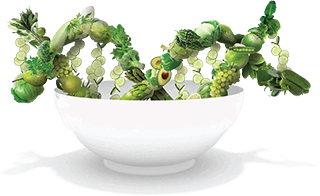Are you getting enough? There are vital nutrients that may be missing from our diets or what we do get falls short of what our bodies need to feel our best. One of these is potassium.
Here’s the technical stuff: potassium is a mineral that works to bring water and water-soluble vitamins into the cells. It works in opposition to sodium; we need a balance for optimal function. Diets too high in sodium upset that balance and cause swelling outside the cells. That swelling is the bloating and water retention we experience as a main consequence of inflammation. If you couple inflammation with low potassium levels, the signals that help maximize brain function diminish as do our moods and energy levels.
How much potassium do we need? The recommended daily allowance is 4700mg. It’s estimated that only 2% of the US population meets this requirement. We can do better!
So, where can we get it? You’re probably not surprised at this answer – from primarily unprocessed plant foods. Which ones? Options include avocado, banana, beans, broccoli, dried fruit, potatoes, squash, dried fruits, tomatoes, and watermelon. A general serving size is 1/2 cup cooked or 1 cup raw.
Packaged foods will give you some potassium but it’s usually the poor-quality kind that your body doesn’t absorb as well. Plus, those same processed foods are generally high in sodium, which only further upsets the aforementioned balance between sodium & potassium. If you’re going to choose processed foods, try to aim for those lower in sodium.
High sodium intake is one factor that makes high blood pressure worse. One approach, the DASH diet (Dietary Approaches to Stop Hypertension), aims for 8 to 10 servings of fruits and vegetables combined daily. By default, this will provide the daily potassium needed to dilate vessels and decrease blood pressure. What might 8-10 fruits and vegetables daily look like?
Have an omelet with vegetables and a piece of fruit for breakfast, add a side salad and double up on vegetables at lunch and dinner and choose a fruit or vegetable to include with snacks.
A quick mention on potassium supplements. This one is simple: Don’t. Take. Any. Too much potassium can cause heart arrhythmias. You likely won’t know this to be true until it’s too late. Steer clear of salt substitutes. They can contain potassium iodide which is essentially a potassium supplement. Choose salt-free fresh and dried herbs in place of salt.
So, the right amount of potassium (about 4-5 grams) combined with keeping your sodium intake around 2g can help reduce blood pressure or keep your levels normal, reduce inflammation and improve your mood!
Don’t forget to catch weekly topics live on Facebook, Tuesdays at 1:00 pm CT.
In good health,

